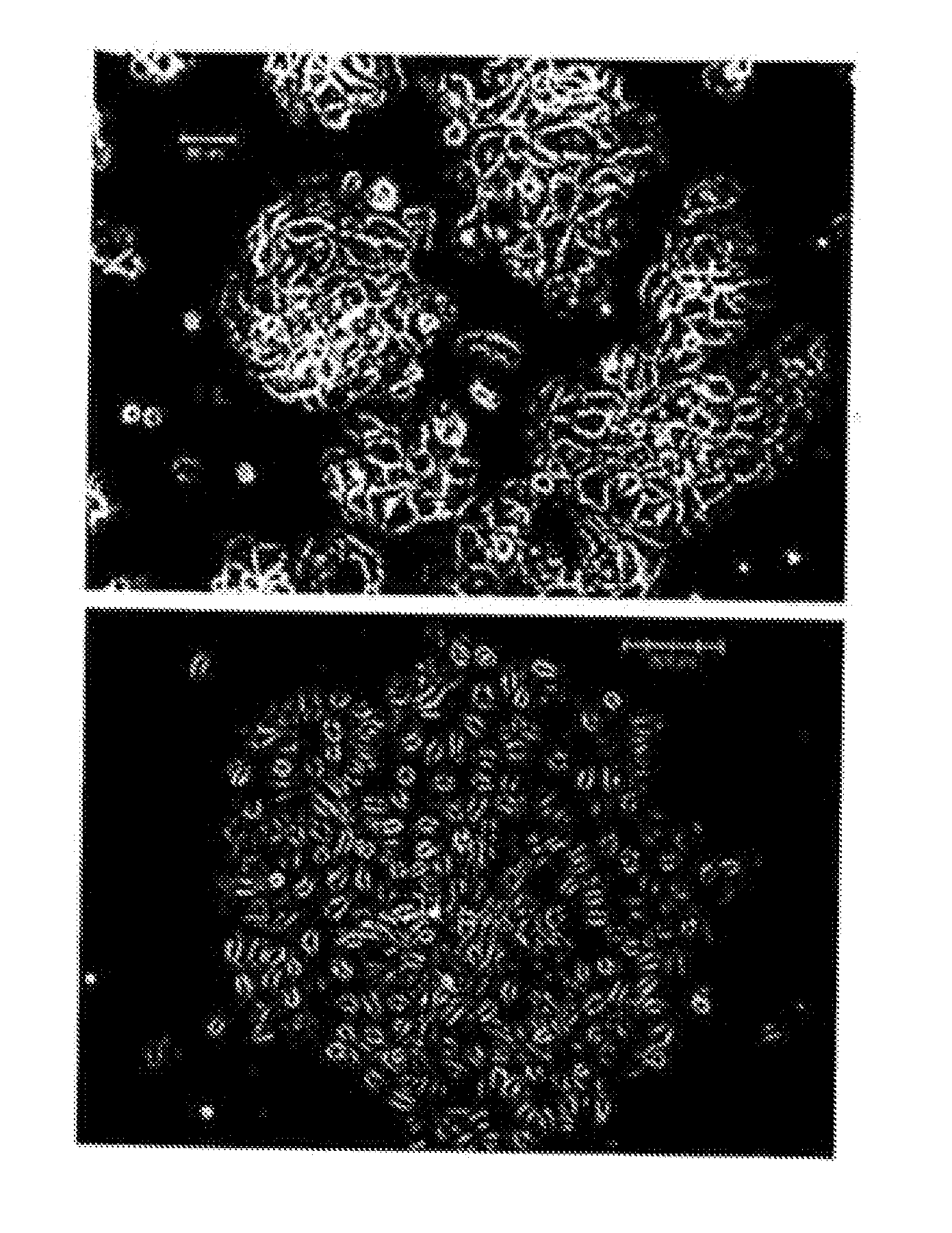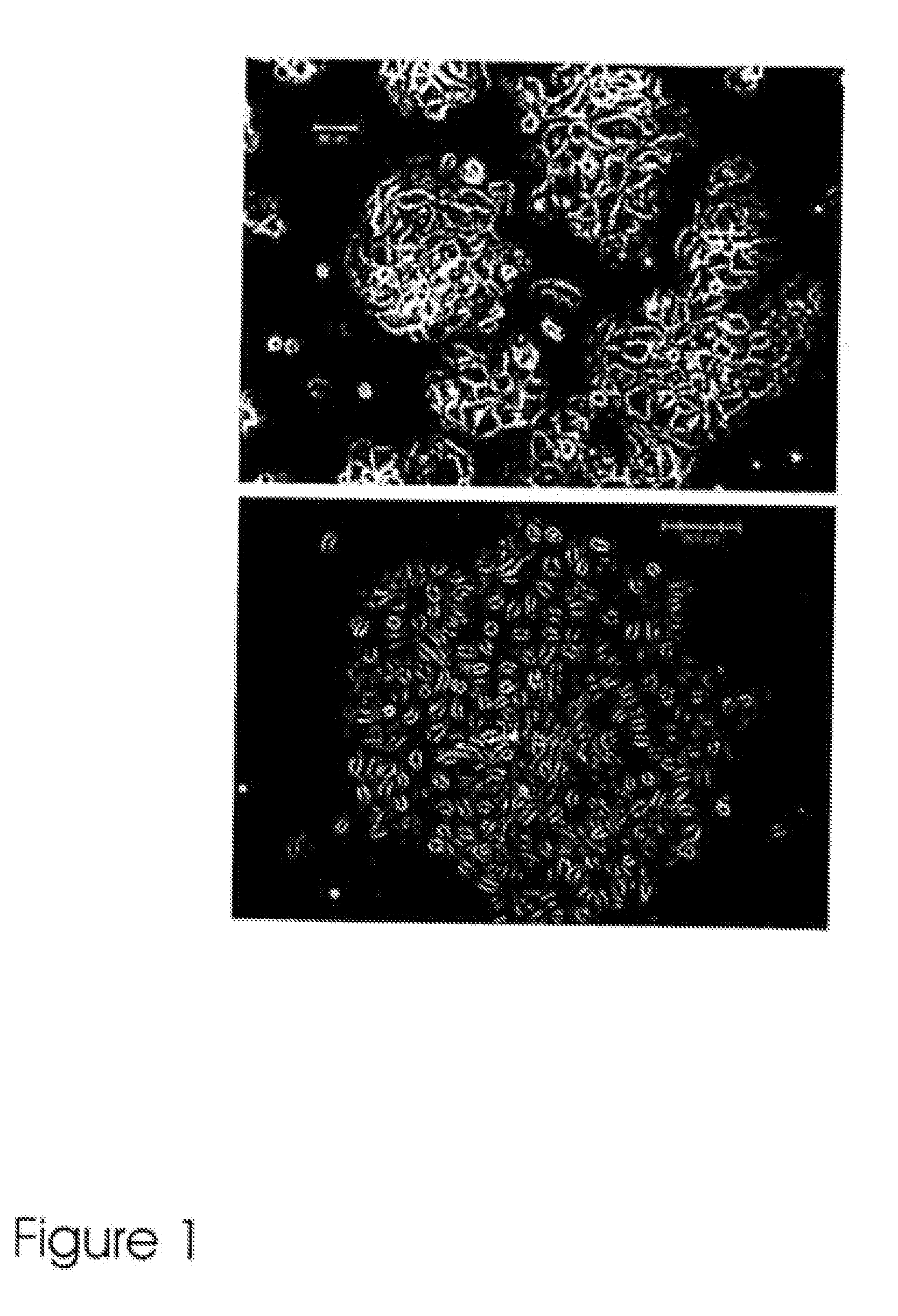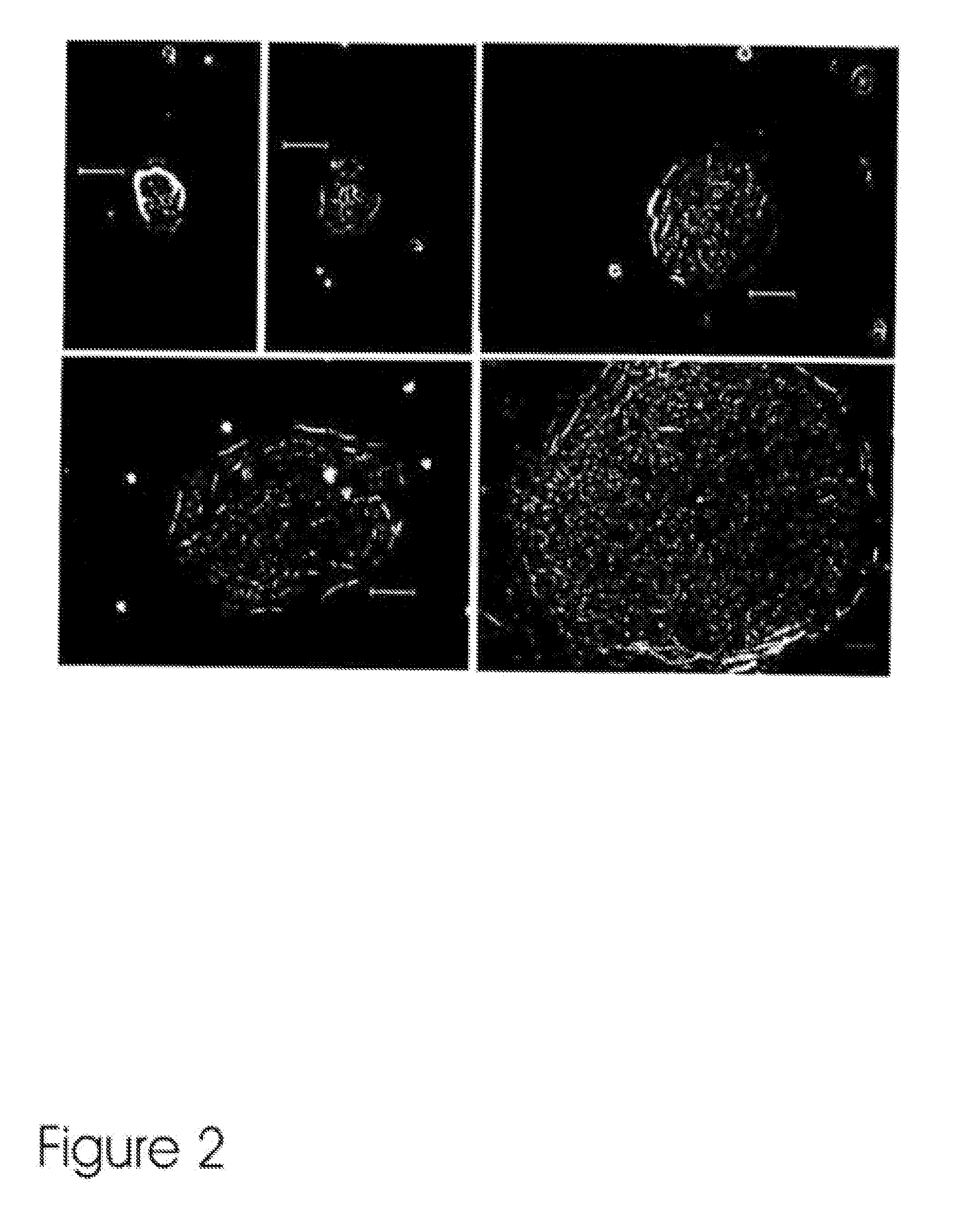Primitive and proximal hepatic stem cells
a proximal and hepatic stem cell technology, applied in the field of human hepatic stem cells and pluripotent cells, can solve the problems of lack of donor livers, lack of knowledge of the cause of the migration of hemopoietic cells, and lack of liver transplantation, so as to minimize the formation of large emboli and extensive growth potential
- Summary
- Abstract
- Description
- Claims
- Application Information
AI Technical Summary
Benefits of technology
Problems solved by technology
Method used
Image
Examples
example 1
Preparation of Hepatic Cell Suspension from Fetal Tissue
[0084] Liver tissue was obtained from fetuses between 18-22 weeks gestational age obtained by elective terminations of pregnancy. The samples of liver tissue were shipped overnight in RPMI 1640 supplemented with 10% fetal bovine serum.
[0085] Tissue volume ranged from 2 to 12 mL after a preparatory wash in cell buffer (RPMI supplemented with bovine serum albumin (BSA Fraction V, 0.1%, Sigma, St. Louis, Mo.), selenious acid (300 pM), and antimicrobial mix, AAS (Gibco BRL / Invitrogen Corporation, Carlsbad, Calif.). Liver tissue was subdivided as necessary into fragments of 3 mL or less for digestion in 25 mL of cell buffer containing type IV collagenase and deoxyribonuclease (Sigma, St Louis, Mo.; both at 6 mg per mL). Incubation was conducted at 32° C. with frequent agitation for 15-20 minutes and resulted in a homogeneous suspension of cell aggregates. The suspension was then passed through a 40 gauge sieve and spun at 1200 RP...
example 2
Preparation of Hepatic Cell Suspension from Adult Tissue
[0089] A human liver was obtained from an authorized organ procurement organization. The donor was a 13 year old female who had suffered brain death. The liver was digested using a whole-organ perfusion technique. The single-cell suspension was then fractionated to obtain viable cells using a 2-step Optiprep gradient (9-12.5%) on a Cobe 2991 cell washer. Live cells were then separated from residual dead cells by mixing equal volumes of the 9% (band 1) and 12.5% (band 2) fractionated cells individually with 25% Optiprep for further fractionation on the Cobe 2991. Based on flow cytometric analysis of forward and side scatter parameters, the cellular composition of band 1 and band 2 appeared similar. The cells were cryopreserved.
example 3
Colony Formation from Adult Human Liver Cells
[0090] To assess the presence of liver stem cells by colony formation, cells from Example 2 were thawed and plated at a density of 12,500 live cells / well on a 6 well plate, in triplicate, onto a STO-5 feeder layer. The tissue culture medium used was DMEM F12 containing penicillin / streptomycin (50 U / ml / 50 ug / ml), bovine serum albumin (0.2% w / v), transferrin (10 ug / ml), free-fatty acids (7.6 uEq / L) nicotinomide (4.4 mM), selenium (3×10(−8) M), copper (1×10(−6) M), 2-mercaptoethanol (5×10(−5) M), L-glutamine (2 mM), insulin (5 ug / ml), hydrocortizone (10(−7) M), with (+EGF) or without (−EGF) the addition of epidermal growth factor.
[0091] Cells were cultured for 5 days, fixed, and colonies counted as visualized by light microscopy. No colonies were observed in any wells of unfractionated cells. This may be due to inhibitory effects of dead or dying cells, or some other component of the cell preparation prior to centrifugation on Optiprep gr...
PUM
 Login to View More
Login to View More Abstract
Description
Claims
Application Information
 Login to View More
Login to View More - R&D
- Intellectual Property
- Life Sciences
- Materials
- Tech Scout
- Unparalleled Data Quality
- Higher Quality Content
- 60% Fewer Hallucinations
Browse by: Latest US Patents, China's latest patents, Technical Efficacy Thesaurus, Application Domain, Technology Topic, Popular Technical Reports.
© 2025 PatSnap. All rights reserved.Legal|Privacy policy|Modern Slavery Act Transparency Statement|Sitemap|About US| Contact US: help@patsnap.com



